Ecological, socio-economic effects of forest restoration PLAE Madagascar
- Title
-
Ecological and socio-economic effects of the forest restoration program PLAE in Madagascar
- Research Institute
-
Georg-August Universität Göttingen
- Funding period
-
from: 01.03.2023
to: 30.09.2025 - Country and Region
-
Madagascar; Northern Madagascar (Diana, Boeny, Betsiboka)
- Sector
-
Environment
- Development Organisation
-
KfW
- Research Design
-
e.g. staggered DiD; Shift-share IV
Project description
Short Description
Ecological and socio-economic effects of the forest restoration program PLAE in Madagascar
Deforestation and the associated erosion have a direct impact on land use in valleys, leading to a significant loss of agricultural, forestry and livestock production potential and destroying important natural landscapes. Madagascar articulates the protection of the remaining natural forests as a key priority. The “Programme de Lutte Anti-Erosive” (PLAE) reforestation programme aims to achieve these objectives by focusing its efforts on the vicinity of protected areas which accommodate the remaining natural forests. The use of wood from reforestation provides livelihood options, and offers a viable alternative to the clearing of forests for agriculture and charcoal production. So far, causal evidence for the validity of these assumptions is largely missing in the Madagascan context.
DEval will fund the impact evaluation of the PLAE programme to assess the effectiveness of the PLAE reforestation programme.
Context
Madagascar is a biodiversity hotspot, with its population heavily dependent on ecosystem services. The extreme pressure on the country's natural resources is triggered by a combination of poverty, population growth, unprotected land ownership and weak state structures, and is further exacerbated by the effects of climate change.
Innovation & Method
The development project provided monetary and technical assistance to farmers to plant trees, implement anti-erosion measures and certify newly afforested land. Land tenure security can increase rural welfare and agricultural productivity, but also lead to structural change by fostering non-farm activities. Whether tenure security also increases land investment and how it affects forest outcomes are ongoing debates which the research project will contribute to through the impact evaluation.
The empirical methods will include difference-in-differences, spatial matching and shift-share instrumental variables.
The research team expects that programme take-up as well as the speed of roll-out to have varied endogenously depending on unobserved local characteristics, which poses a challenge for an ex-post policy evaluation. The quasiexperimental empirical approach will rely on a parallel trends assumption, and will implement a staggered difference-in-difference (DiD) design across early and late-treated spatial units (as well as additional matched control units).
Expected results/Research questions
Within this setting, the research team identified the following research questions:
RQ1: Did participation in the programme result in sustained forest restoration, and were the effects of the programme heterogeneous?
RQ2: Did the forest restoration programme lead to substantial spill-over effects, triggering land-use change on plots not included in the programme or preventing it in protected areas?
RQ3: Did the long-term success of the programme after the end of the implementation phase significantly depend on land tenure security?
RQ4: What were the socio-economic effects of land tenure security among participants in the programme?

